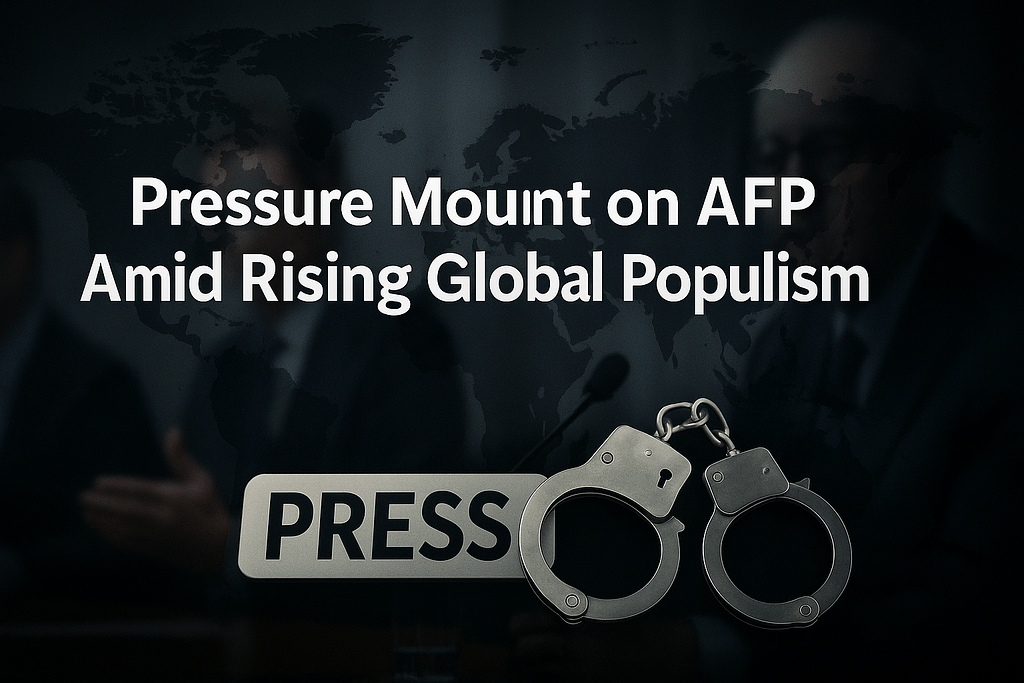In a world increasingly shaped by populism and political polarization, truth itself has become a battleground. The Agence France-Presse (AFP) — one of the oldest and most respected news agencies — finds itself in the crossfire of global politics, struggling to uphold journalistic independence as new waves of populist leaders seek to redefine the media’s role in society.
Over the past few years, populist movements have gained ground in countries from Europe to Latin America, Asia, and Africa. These movements often rise on promises of “speaking for the people,” yet paradoxically, they frequently target journalists — the very voices that give the public access to truth. As a result, AFP reporters around the world are facing increased intimidation, censorship, and financial strain.
In some regions, governments have tightened access to public data, imposed restrictions on foreign correspondents, or labeled international media as “enemies of the state.” The goal is clear: control the narrative. AFP’s commitment to neutral, fact-based reporting makes it both invaluable — and vulnerable — in such environments.
At the same time, the digital revolution, once hailed as a tool for democratizing information, has become a double-edged sword. Social media has amplified misinformation, allowing populist leaders to bypass traditional media and spread their messages directly to millions. AFP journalists now not only compete against falsehoods but must also defend their credibility in a world where facts are constantly twisted and manipulated.
Financial challenges add another layer of difficulty. Several governments have reduced or withdrawn funding from independent media, while advertisers increasingly favor content that prioritizes engagement over accuracy. This shift has placed institutions like AFP in a delicate position — fighting to survive financially without compromising ethical standards.
Yet, despite mounting pressure, AFP continues to stand as a symbol of journalistic integrity. With a presence in over 150 countries, its correspondents risk their safety daily to bring verified news from conflict zones, disaster areas, and political frontlines. Each story they publish is a quiet act of resistance — a reminder that the truth still matters in an era of spin and manipulation.
Global organizations such as Reporters Without Borders and UNESCO have repeatedly warned that freedom of the press is under serious threat. The 2025 World Press Freedom Index shows a steady decline in the number of countries considered “free.” In many democracies, journalists are harassed online, surveilled, or silenced through legal intimidation.
The rise of populism is not just a political shift — it is a cultural one. It reflects growing mistrust in institutions, elites, and even facts themselves. In this climate, agencies like AFP are more than news providers; they are defenders of collective memory and accountability.
If journalism falls, democracy follows. When truth becomes optional, power becomes absolute.
That is why AFP’s fight is not just its own — it is a fight for every citizen who believes in transparency, justice, and the right to know.
As global populism tightens its grip, the question remains:
Will the world stand by as the light of free press dims — or will it rise to protect it before it’s too late?



